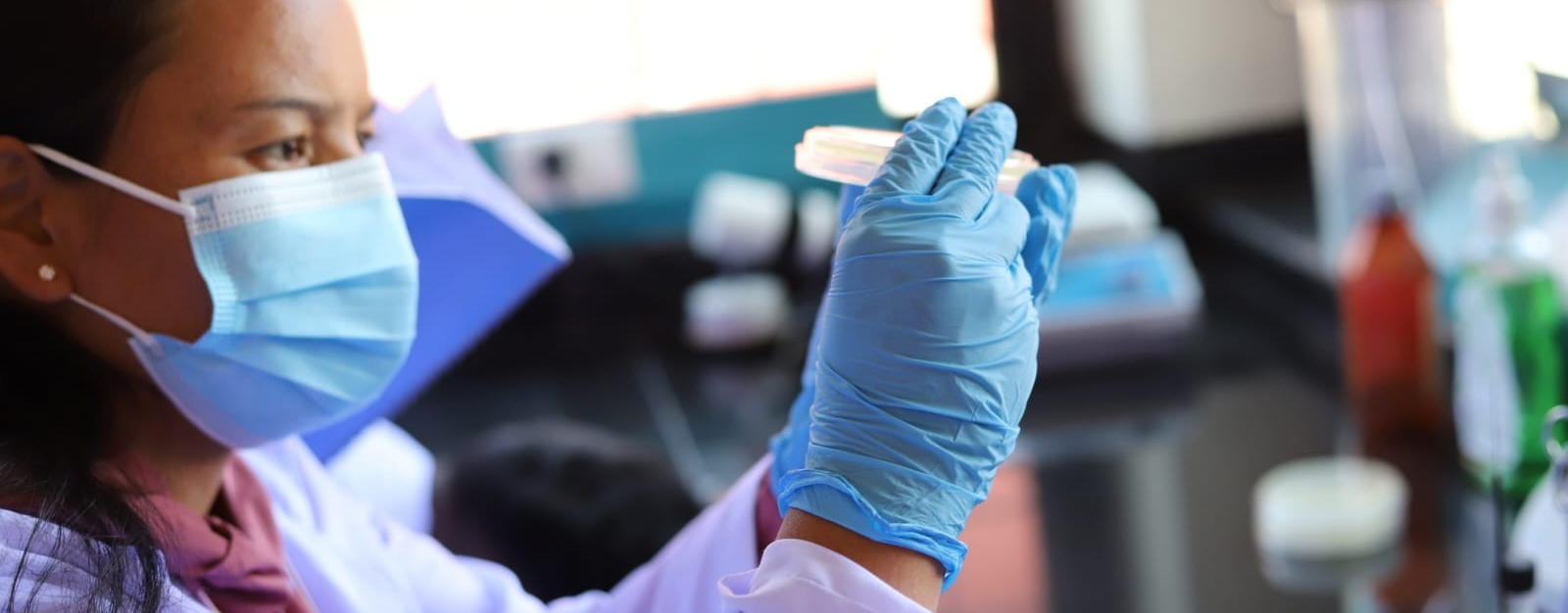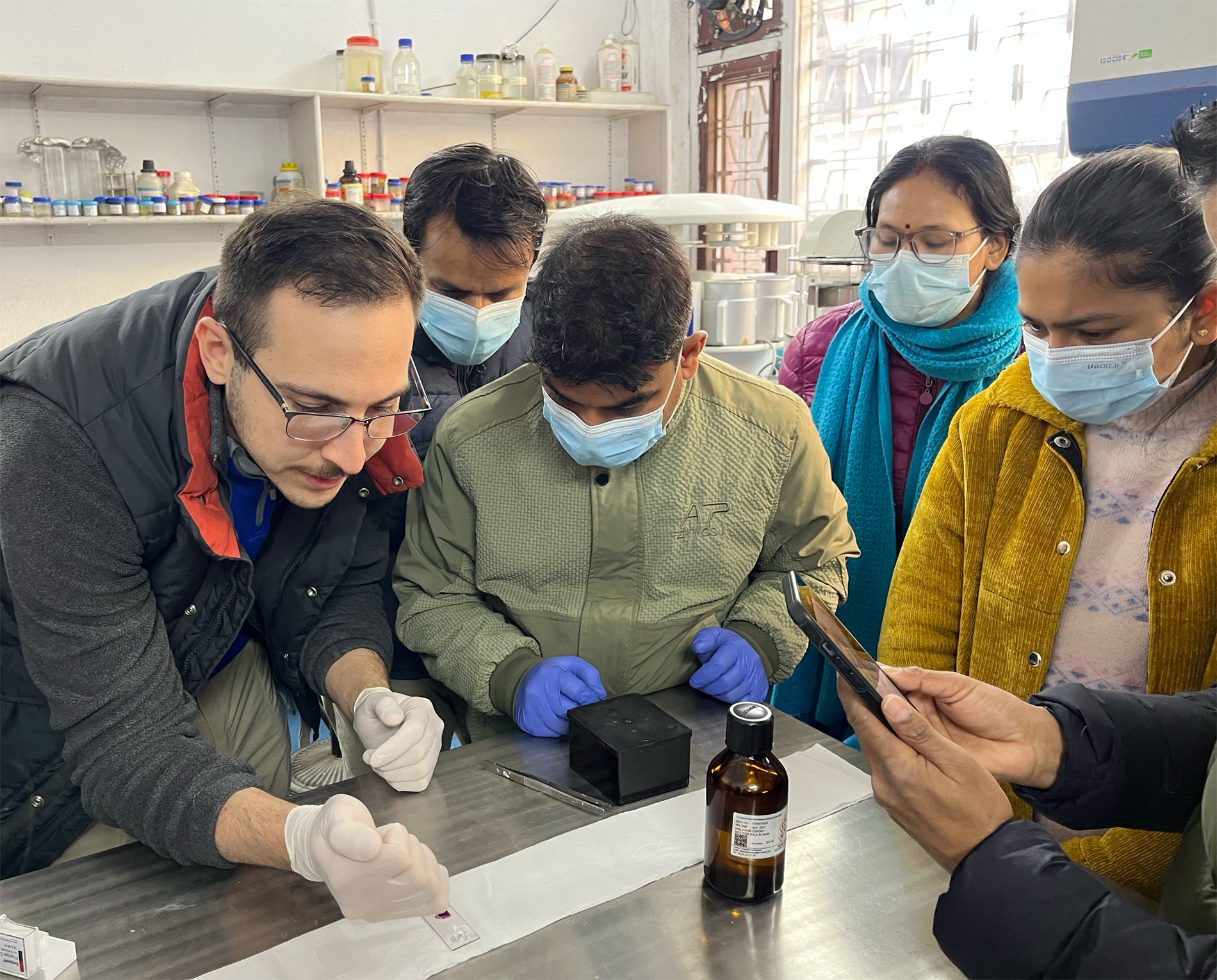Strengthening pandemic preparedness for early detection in Nepal - highlights

Nepal is taking significant strides to build a stronger, more responsive animal health system through the SPEED project, led by FAO with support from the Pandemic Fund. The project focuses on three core areas: enhancing laboratory systems, improving surveillance capacity, and investing in human resource development.
Here's a look at key activities from January to March 2025.
Strengthening the National Laboratory System
A strong laboratory network is essential for early detection of emerging diseases. SPEED is helping improve infrastructure, enhance diagnostic capacity, and train laboratory personnel to ensure timely and accurate disease identification across the country.
Laboratory placement training: Two six-day hands-on training programs were conducted for animal health technicians in Biratnagar and Pokhara. These sessions, held in January and March, equipped 23 technicians from Koshi and Gandaki provinces with practical lab diagnostic skills essential for field-level work.
Sample collection and reporting training: FAO, with the Central Veterinary Laboratory (CVL), organized three two-day training in Sunsari, Udayapur, and Surkhet, benefiting 63 animal health professionals. Participants also received sample collection kits to facilitate local surveillance efforts.
ISO 17025 write-shop: A two-day write-shop was conducted to support CVL's journey toward ISO 17025 accreditation. Experts from the National Bureau of Standards and Metrology guided the development and refinement of documentation.
Pathology trainings with global experts: Partnering with Agriculture and Forestry University (AFU), international pathology experts led a series of trainings on histopathology, immuno-histochemistry, clinical pathology, and necropsy. A total of 69 professionals from across the veterinary and academic sectors participated.
Cold chain and vaccine management: Training workshops held in Madhesh and Koshi provinces trained 56 officials in maintaining cold chain equipment and managing vaccines effectively.
Infrastructure and equipment support: FAO contributed to laboratory renovation efforts, including modular furnishings in Dhangadhi and equipment provision, such as a slide scanner for CVL and trinocular microscopes across sub-national labs.

Enhancing surveillance capacity
Improved surveillance is critical to detect outbreaks early and respond swiftly. Through trainings, bio-surveillance programs, and local-level engagement, SPEED is strengthening both passive and active surveillance systems across Nepal.
AMR awareness for veterinary stakeholders: Six orientation programs in Parsa and Rupandehi educated over 200 veterinarians, technicians, and agrovet entrepreneurs on antimicrobial resistance (AMR) and responsible drug use.
Women-led AMR and One Health awareness: On International Women’s Day 2025, a Pokhara-based training targeted 21 female animal health professionals, highlighting zoonotic diseases, AMR, and gender-responsive approaches.
Biosecurity for poultry farmers: Twenty-five poultry farmers in Udayapur were trained on farm-level biosecurity and rational antimicrobial use. Participants received biosecurity kits to reinforce learning.
Notifiable disease recognition: A Surkhet-based training engaged 31 new veterinary officers in recognizing and reporting notifiable livestock diseases as listed by the Government of Nepal.
Outbreak investigation training: From 19–21 February, 21 officials from four provinces joined an intensive training on epidemiology, outbreak investigation, risk communication, and data analysis.
Avian influenza bio-surveillance: The second phase of a nationwide surveillance initiative covered 16 high-risk districts, systematically monitoring avian influenza presence in poultry and pigs.
Strengthening passive surveillance: Six workshops across key cities emphasized the importance of local-level veterinary engagement in disease reporting and early warning systems.
Pig and poultry value chain workshops: Twelve provincial workshops were conducted to share findings from a value chain study. A final review workshop with DLS management refined recommendations for action.
Human resource development
Equipping the animal health workforce with knowledge and tools is vital for sustainability. SPEED supports awareness programs, technical training, and leadership development to build a skilled frontline of veterinarians and animal health workers.
Zoonotic disease awareness for farmers: A one-day session in Gorkha raised awareness among 25 smallholder farmers on zoonoses like Rabies and Bird Flu. Educational materials were distributed to help reinforce preventive measures.
Graduation of first FETPV cohort: A major milestone was achieved with the graduation of the first cohort of the Three-Month Field Epidemiology Training Program for Veterinarians (FETPV). Thirteen veterinarians gained essential skills in surveillance, outbreak response, and data analysis.
“The trainings I received from FAO have empowered me to deliver effective animal health services, even in communities where women professionals often face skepticism.” — Rakshya Khanal, Veterinary Officer
“The FETPV training gave me the tools and confidence to handle outbreak investigations and analyze surveillance data—skills I lacked before.” — Anushka Rajbhandari, Veterinary Officer
One Health workshop in Madhesh: On 9 March, a One Health workshop in Janakpur brought together 30 senior government officials to form the Provincial One Health Committee - a key step in strengthening cross-sectoral collaboration.
